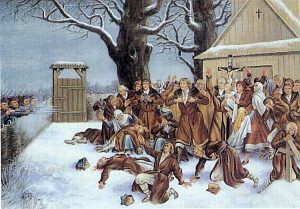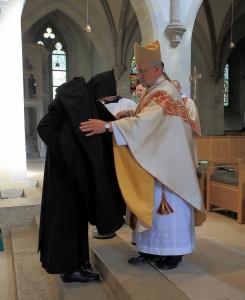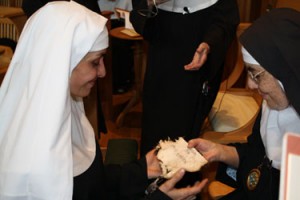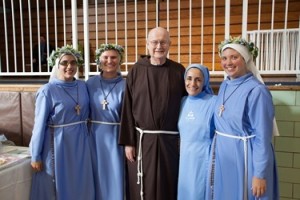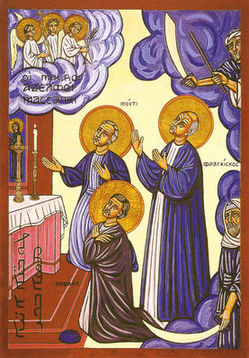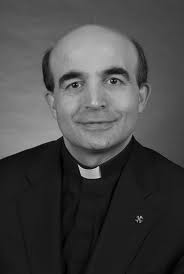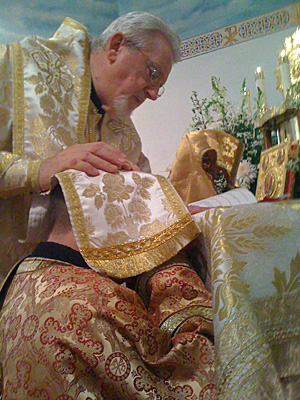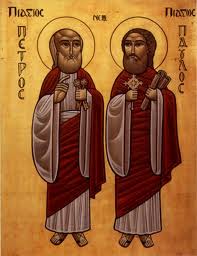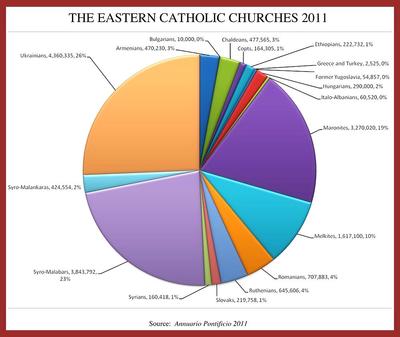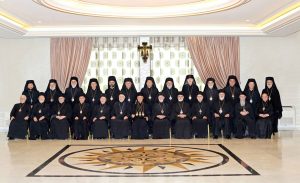 Earlier this month the Patriarch and bishops of the Melkite Church met in Synod in Lebanon to deliberate on some serious matters concerning the Church, including the election of new bishops. Following the Synod, the bishops travelled to Rome to make a pilgrimage to the holy places –the shrines of Saints Peter and Paul– and then to meet with the Roman Pontiff in addition to meeting with the various heads of the Roman dicasteries. When the Synod met last year the only substantial thing done was to elect a new Patriarch. Meetings of substance now. At 11.45 this morning (Feb 12, 2018), the Holy Father Francis received in audience the members of the Melkite Synod, and addressed the following words to them:
Earlier this month the Patriarch and bishops of the Melkite Church met in Synod in Lebanon to deliberate on some serious matters concerning the Church, including the election of new bishops. Following the Synod, the bishops travelled to Rome to make a pilgrimage to the holy places –the shrines of Saints Peter and Paul– and then to meet with the Roman Pontiff in addition to meeting with the various heads of the Roman dicasteries. When the Synod met last year the only substantial thing done was to elect a new Patriarch. Meetings of substance now. At 11.45 this morning (Feb 12, 2018), the Holy Father Francis received in audience the members of the Melkite Synod, and addressed the following words to them:
Beatitude, dear Brothers in the Episcopate,
Thank you for your visit. The happy occasion is given by the public event of the Ecclesiastical Communion, which will take place tomorrow morning during the Eucharistic celebration and which I have already had the opportunity to grant to Your Beatitude in the Letter of 22 June, after your [Joseph Absi, MSP] election as Patriarch, Pater et Caput, on the part of the Synod of Bishops.
So, as today, dear Brother, I assure you of my constant closeness in prayer: that the Risen Lord will be near you and accompany you in the mission entrusted to you. It is a prayer that cannot be dissociated from that for the beloved Syria and for all the Middle East, a region in which your Church is deeply rooted and performs a precious service for the good of the People of God. A presence, yours, which is not limited to the Middle East, but has extended, for many years now, to those countries where many Greek-Melkite faithful have moved in search of a better life. My prayer and my affectionate remembrance goes also to those faithful in the diaspora and to their Pastors.
In this difficult historical period, many Christian communities in the Middle East are called to live their faith in the Lord Jesus in the midst of many hardships. I sincerely hope that, by their testimony of life, the Greek-Melkite bishops and priests can encourage the faithful to remain in the land where Divine Providence wished them to be born. In the aforementioned June Letter I recalled that like never before, “pastors are called upon to manifest communion, unity, closeness, solidarity and transparency before the suffering People of God”. I invite you fraternally to continue on this path. As you know, I have called a day of prayer and fasting for peace on the 23rd of this month. On that occasion I will not fail to make special mention of Syria, afflicted in recent years by unspeakable suffering.
You come to Rome as pilgrims, at the tomb of the Apostle Peter, at the conclusion of your last Synodal Assembly, which took place in Lebanon in the first days of the month. It is always a fundamental moment of common journey, during which Patriarch and bishops are called to make important decisions for the good of the faithful, including through the election of new bishops, of pastors who are witnesses to the Risen Lord. Pastors who, as the Lord did with His disciples, revive the hearts of the faithful, staying close to them, consoling them, stooping to them and to their needs; pastors who, at the same time, accompany them upwards, to “set their minds on things that are above, where Christ is, not on things that are on earth” (cf. Col 3: 1-2). We are in great need of pastors who embrace life with the breadth of God’s heart, without settling for earthly satisfactions, without contenting themselves with carrying on what is already there, but always aiming high; pastors who are bearers of the High, free from the temptation to stay “at low altitude”, freed from the restricted measures of a warm and habitual life; poor pastors, not attached to money and luxury, in the midst of a poor people who suffer; coherent announcers of Paschal hope, in perpetual journey with their brothers and sisters. While I am pleased to grant Pontifical Assent to the bishops you have chosen, I would like to experience the greatness of these horizons.
Beatitude, Excellencies, I reiterate my heartfelt gratitude for your fraternal visit. When you return to your sees and meet with the priests, men and women religious and the faithful, remind them that they are in the heart and in the prayer of the Pope. May the All Holy Mother of God, Queen of Peace, guard and protect you. And as I have the joy of giving my Blessing to you and your communities, I ask you, please, not to forget to pray for me.
